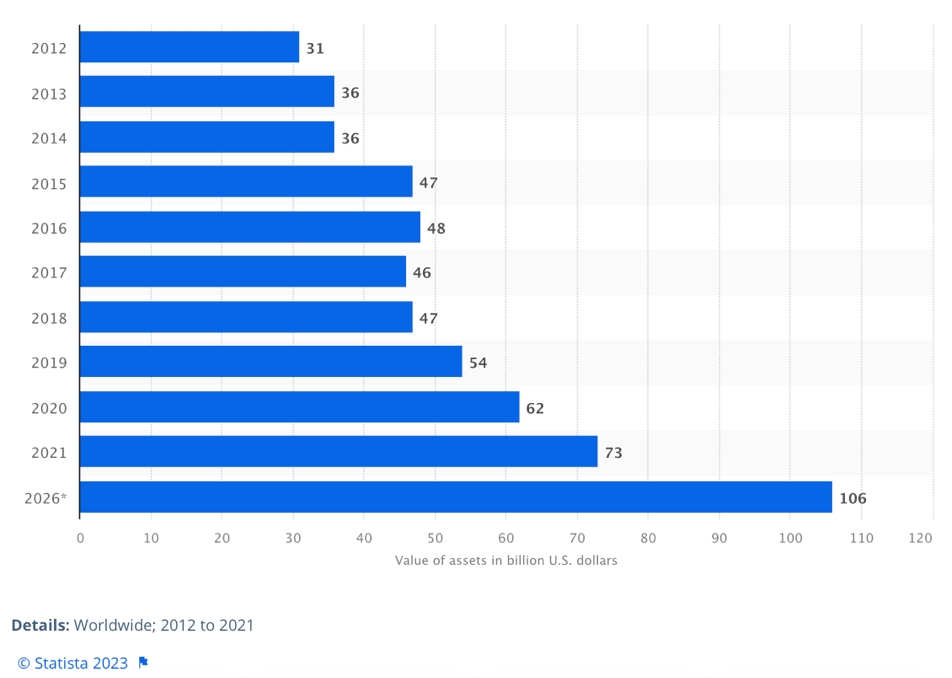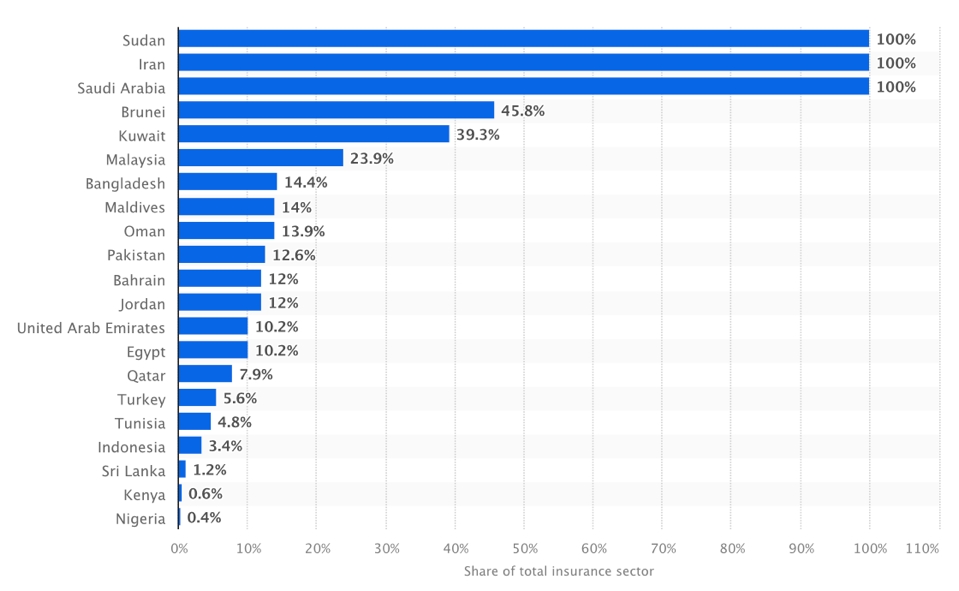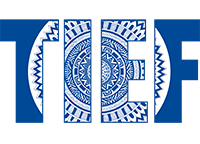About
TIEF – Turin Islamic Economic Forum
The Turin Islamic Economic Forum is a project shared by the City of Torino, the Chamber of Commerce of Torino, the University of Torino and ASSAIF– Associazione per lo Sviluppo di Strumenti Alternativi e di Innovazione Finanziaria – to promote effective initiatives on Islamic Finance for social inclusion and economic development of the territory.
It’s a unique event hosted by a local government that offers local stakeholders the chance to meet international leading players in the fields of Islamic finance and economy.
An event to share ideas, learn from outstanding international best practices and examine new trends in Islamic Finance focusing on the use of Islamic finance to trigger processes of social inclusion and to foster economic development and internationalisation.
What
The Turin Islamic Economic Forum (TIEF) is a project shared by the City of Torino, the Chamber of Commerce of Torino, the University of Torino and ASSAIF– Associazione per lo Sviluppo di Strumenti Alternativi e di Innovazione Finanziaria – to promote effective initiatives on Islamic Finance for social inclusion and economic development of the territory.
The Turin Islamic Economic Forum (TIEF) is a strategic event for the consolidation of the international role of Torino; it aims to make Torino an Islamic economic hub in Italy and Europe by creating knowledge and awareness on Islamic economics, fostering social inclusion and investments attractiveness.
Torino is working on the creation of a favourable environment for investments and also to make Torino a better place to live.
Torino and its Metropolitan City have reached a population of 2,3 million inhabitants, 1 million of which is under 45 years old. A Muslim community of about 50 thousand people has been living well integrated in the territory for many years: 40% of them have Italian citizenship.
Torino is an open and plural city that has developed policies and projects focused on religious pluralism and dialogue, through:
- the Interfaith Committee, promoted by the city administration in 2006 has been fostering the dialogue between different religious traditions.
- the “Patto di Condivisione e Cittadinanza” an Agreement signed at the City Hall on 19 February 2016 with all the 20 Islamic Centres based in Torino, to assert that Torino is a multi-ethnic, multicultural and multi-religious city supporting integration, sharing and mutual respect.
- it has been 20 years now since state schools in Torino have been offering the possibility to have specific diets to meet religious needs. Moreover, our schools have specific programs and projects focusing on intercultural education and religious pluralism.
- the Torino Airport Sandro Pertini has recently opened a prayer room dedicated to Muslims in addition to the already existing prayer rooms devoted to other faiths.
- an Arabic edition of the City website http://www.comune.torino.it/ar/
- the EidAl-Fitr celebration has been opened for the last 8 years by speeches given by representatives of the City and by representatives of the main religious faiths: Catholics, Jews, and Protestants.
- the Civil Service for Young Immigrants was established in 2006 following an agreement between the City and the Ministry for Social Solidarity which funded a programme addressed to second-generation immigrants, in particular those living in Torino but with no Italian citizenship, and therefore not allowed to apply for the National Civil Service.
- the Intercultural Centre of the City of Torino was founded in 1996 to offer opportunities of intercultural training, exchange and dialogue both to residents and migrants.
- the activities of the University Research Centre and of the European Journal on Islamic Finance, the first international scientific journal on this topic in Europe, have been active for many years.
The TIEF is stimulating new collaborations, ideas and projects toward an inclusive, sustainable and competitive development of the territory.
Why
The Islamic financial sector represents a particular sector within the global financial industry. The total Islamic financial assets have a combined value of nearly $3.9 trillion. This sector is based on the basic principles of Islamic law, known as Shariah. Investing in the Islamic financial sector is considered a form of social and ethical responsibility, as it aims to avoid profit from riba, which most Islamic scholars interpret as interest, while some consider rather as usury. In addition, Islamic financial institutions avoid gharar, which is investing in high-risk or speculative ventures. Risk must be shared equally among all parties involved in a business venture. It is also forbidden to invest in sectors contrary to Islamic morality, such as businesses related to alcohol, gambling (such as casinos) or pork.
Both finance and the Islamic economy continue to experience robust growth, contributing significantly to global economic growth. According to authoritative sources such as Dinar Standard and Statista (July 2022), Islamic finance grew by 125 per cent between 2012 and 2021, far outpacing the growth of the traditional banking sector. The Muslim population, a large catchment area for the Islamic economy, is also growing steadily. In 2010, the number of Muslims globally reached 2.07 billion, accounting for about 25 per cent of the global population. This figure underscores the enormous growth potential and significant socio-economic impact that the Islamic economy can have internationally.
The growth of the Islamic economy and finance is a noteworthy phenomenon that increasingly influences the global economic landscape, creating new investment opportunities and promoting the development of financial products by the principles of Islam. This continued expansion offers exciting prospects for the world economy, placing the Islamic economy as an increasingly significant player in international financial markets.
The City of Turin believes that Islamic finance is a useful tool for bringing the Islamic community closer and contributing to its integration and that it can be a platform for attracting investment to the territory from those countries where Islamic finance plays a decisive role in economic and employment development.
Italy is the third-largest economy in the euro area and the ninth-largest globally, with a GDP of more than $2.108 trillion. Turin is one of Italy’s major industrial cities but also an important cultural centre of excellence that has been able to diversify its business sectors and, therefore, fully meet the needs of Islamic finance. Some of these areas will be discussed during the different editions of TIEF: the real estate, gastronomy, insurance, tourism, healthcare, biotechnology and infrastructure, finance, aerospace, sports, and automotive sectors.
TIEF is an excellent opportunity to meet with some of Italy’s leading corporate leaders, financial service providers, entrepreneurs, legislators, regulators, researchers, practitioners and academics.
All will be invited to engage with Islamic finance investors and key financial market players.
Islamic Finance
Islamic finance is the set of all those financial transactions that conform to the principles of Sharia (an Arabic term for the high road to salvation).
Islamic economics is based on the principle of wealth distribution to achieve justice, equality, fairness and economic balance within society.
The basic principles of Islamic finance include the prohibition of Riba (usury), the prohibition of Gharar (uncertainty/speculation), the prohibition of Maysir (gambling), and the prohibition of non-halal investments, i.e., the prohibition of Haram (unethical) activities, products, or services, such as alcohol, tobacco, pork, pornography, and weapons.
Islamic finance in numbers
Islamic finance has a global presence in more than 75 countries. Financial assets are primarily located in Gulf countries ($1,617 billion), other countries in the Middle East and North Africa ($1,300 billion), Southeast Asia ($803 billion), Europe ($113 billion) and South Asia ($107 billion). These numbers also include Takaful and Sukuk.
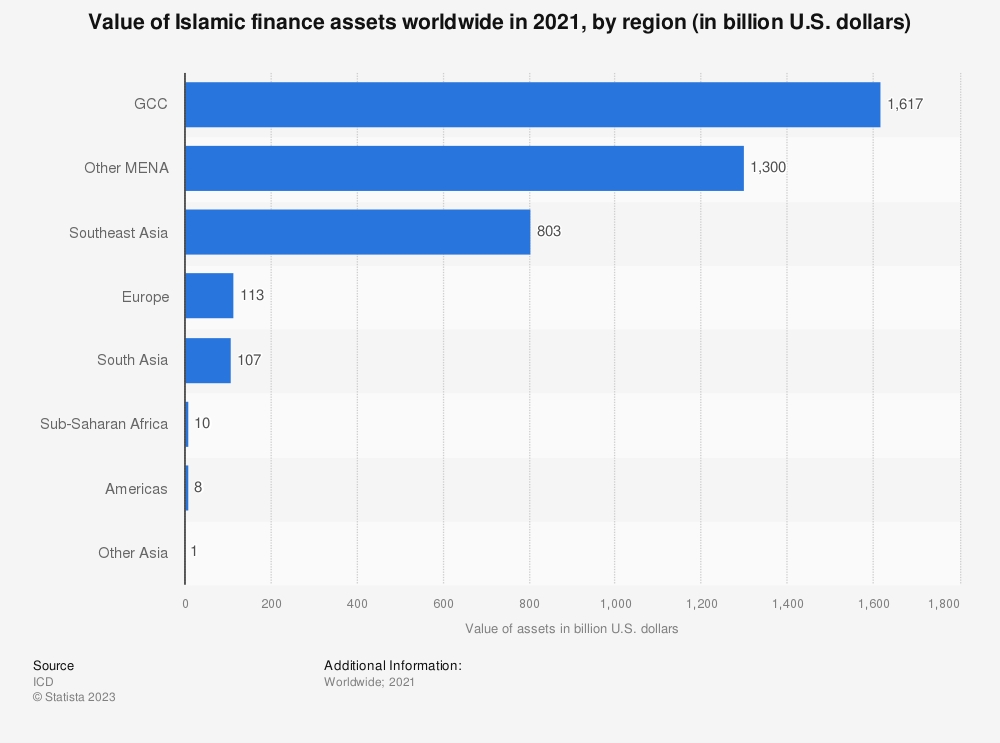
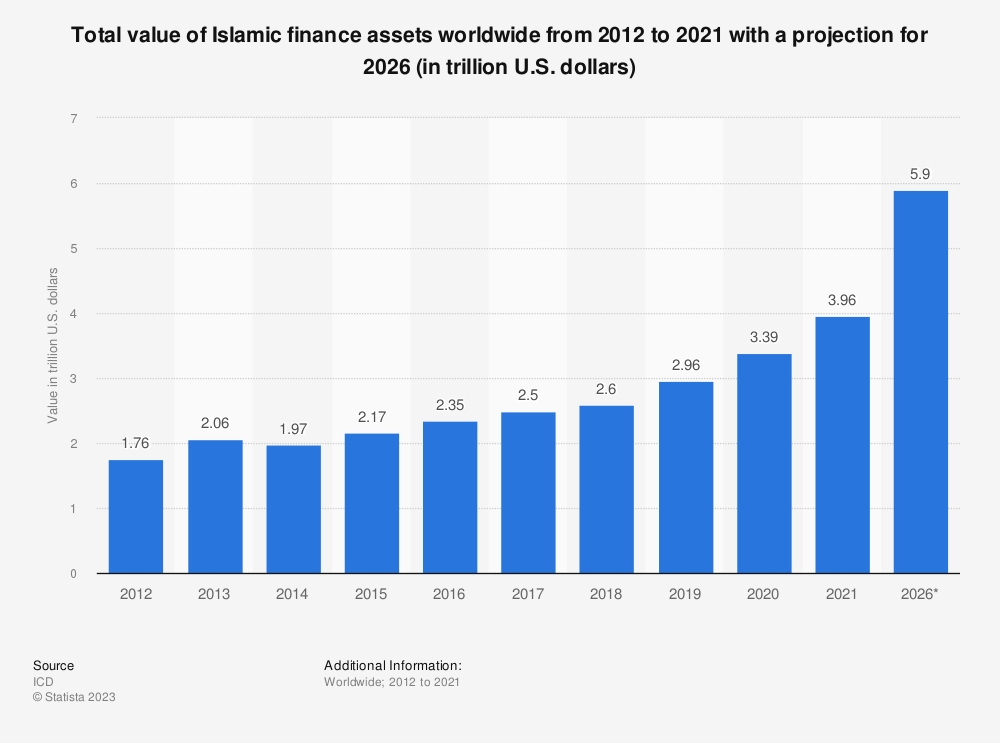
The numbers of the halal market
Food and beverage
According to the State of the Global Economy Report (Dinar Standard, 2022), Muslim spending on food and beverages increased by 6.9 per cent in 2021, from $1.19 trillion to $1.27 trillion, and is expected to grow by 7.0 per cent in 2022 and reach $1.67 trillion in 2025, a 7.1 per cent growth rate per year. Increasingly, Muslim consumers who do not live in countries of origin are seeking halal foods. This increases the local market by pushing the value of food safety and new technologies that enable more effective traceability of products.
Fashion
Muslim spending on fashion increased by 5.7 per cent in 2021, from $279 billion to $295 billion, and is expected to grow by 6.0 per cent in 2022, reaching $313 billion and $375 billion in 2025, a four-year growth rate of 6.1 per cent. Challenges for Islamic fashion include e-commerce and omnichannel marketing that enable clothing export to all countries worldwide.
Medicines
Pharmaceutical spending by Muslims increased by 6.5 per cent in 2021, from $93.5 billion to $100 billion, and is expected to grow by an additional 6.7 per cent in 2022, reaching $106 billion and $129 billion in 2025, a 6.7 per cent year-on-year growth rate. The drug sector, as well as the food and beverage sector, is also experiencing growth due to exports and the role of technology in the processes of certifying production steps.
Cosmetics
Spending by Muslims on cosmetics increased by 6.8 per cent in 2021, from $65 billion to $70 billion, and is expected to grow by an additional 7.2 per cent in 2022, reaching $75 billion and $93 billion in 2025, a 7.4 per cent growth rate per year.
Riba
Riba, usury, is prohibited. Riba means unjustified gain, the enrichment produced by money. Instead, lending money for business purposes is allowed based on profit and loss sharing principles.
Gharar
Gharar, uncertainty, means excessive risk in Arabic. The terms and conditions of the risks and contract, such as between buyer and seller, must be fully understood and accepted by both parties involved in the financial transaction to ensure the full consent of all parties to the contract.
Maysir
Maysir in Arabic means gambling, such as the lottery, and is prohibited because of unwarranted gains and increased wealth due solely to luck, resulting in the passing of wealth from one person to another to the detriment of society.
Halal and Haram investments
The acquisition of property by Muslims must be through ethically permissible activities defined by the Arabic term Halal. These activities can be carried out through trade and partnership investments.
Muslims are prohibited from engaging in Haram, i.e., unethical activities. Unethical Haram activities are not only represented by the prohibitions of riba, gharar and maysir but also by all those specific activities and industries prohibited from an ethical and social point of view, such as investments in alcoholic beverages, pornography, weapons and pork products.
Sukuk
The term Sukuk in Arabic refers to certificates (Sukuk is the plural form of Sak), an alternative to traditional bonds. In common bonds, the borrower is obligated to repay the initial counter value plus the agreed interest rate, while Sukuk is structured so that earnings are linked to the underlying asset, and lenders boast a certificate of ownership over it.
The Sukuk market offers many opportunities, particularly in infrastructure development. In 2014, the United Kingdom was the first Western government to issue an Islamic bond finding a significant level of interest and attracting orders from global investors of £2 billion ($2.85 billion), followed in the same year by Luxembourg with a €200 million ($254 million) 5-year Islamic bond. The latest data from the Islamic Financial Services Industry Stability Report 2022 show that 44 per cent of Sukuk are issued by sovereign states, 42 per cent by corporations, and 14 per cent by multilateral organisations.
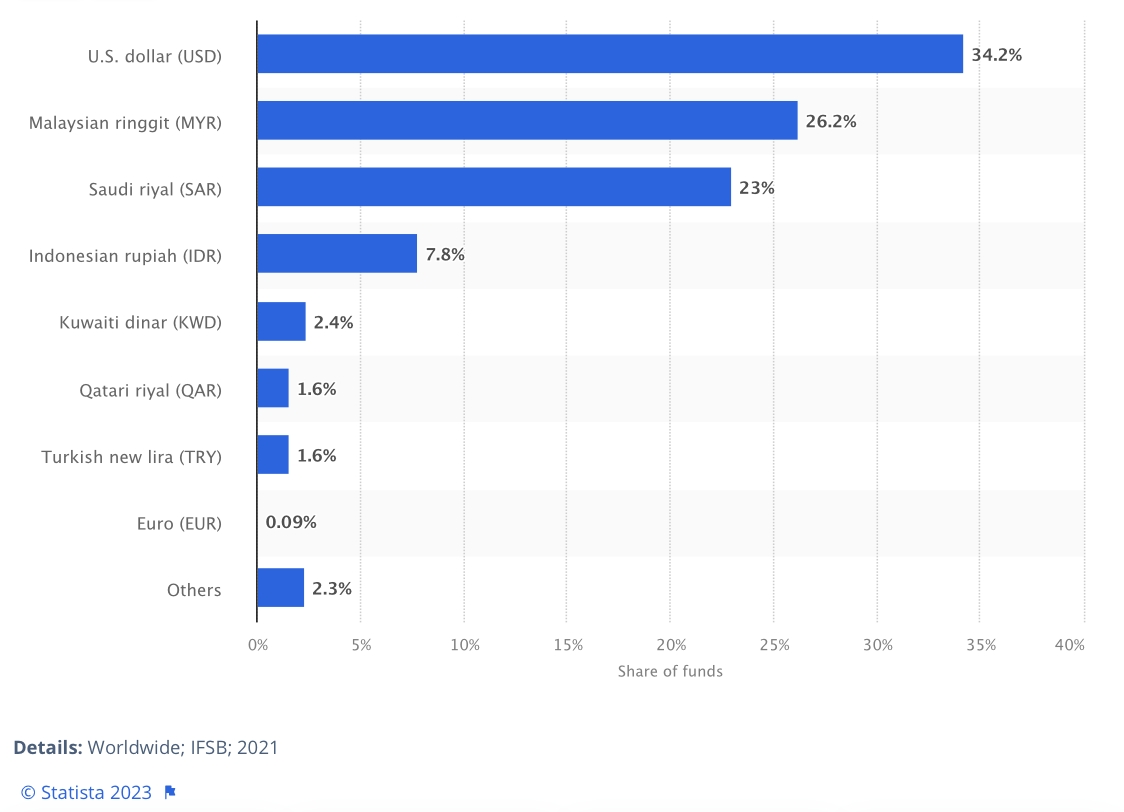
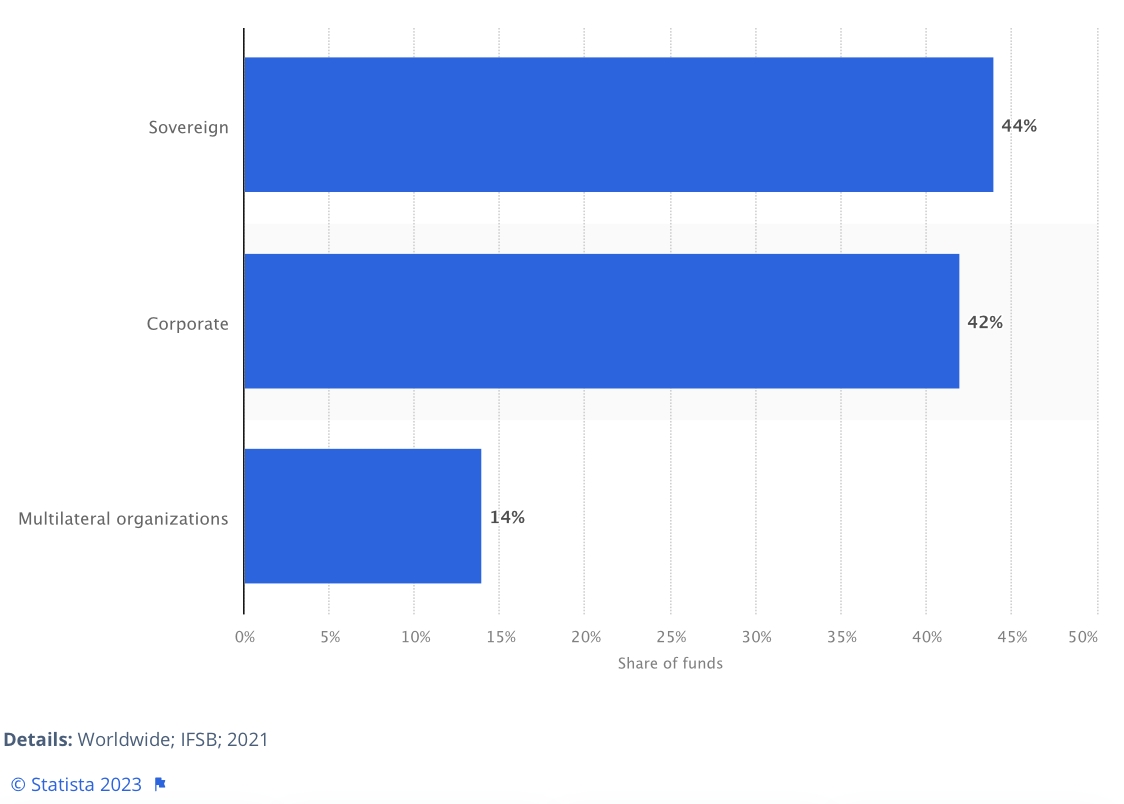
Interestingly, 34 per cent of Sukuk are issued in dollars. 26% in the currency of Malaysia and 23% in the currency of Saudi Arabia. Only 0.09% are issued in euro.
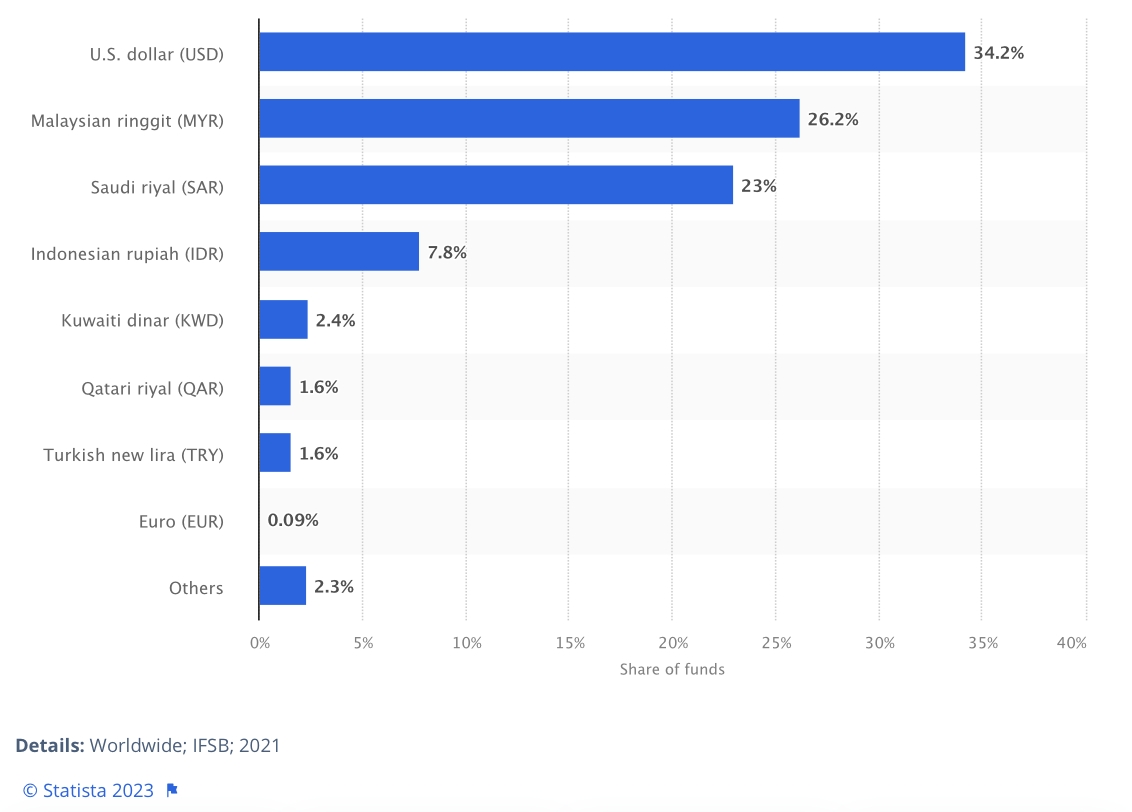
Takaful
Takaful is a risk-sharing-based form of insurance similar to traditional insurance that allows for transparent risk-sharing, where participants contribute their resources to a common fund for the benefit of all. The Shariah-compliant insurance industry provides risk management support within the various markets that offer Islamic financial services. The following is some data from the ICD – Refinitiv Islamic finance development report (2022) on the value of Takaful and the contribution of different countries worldwide.
